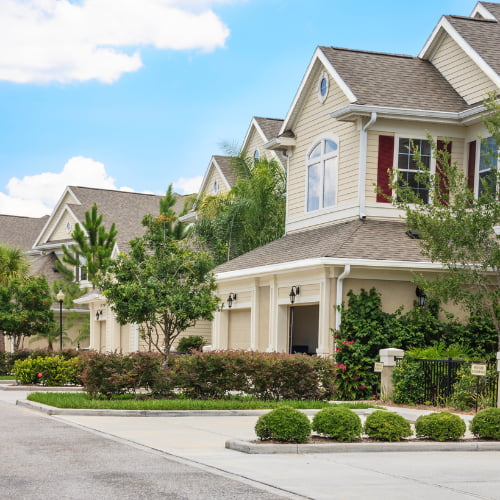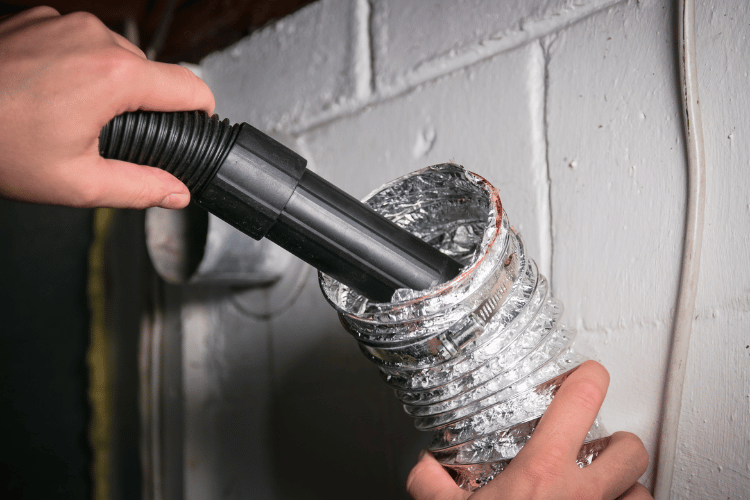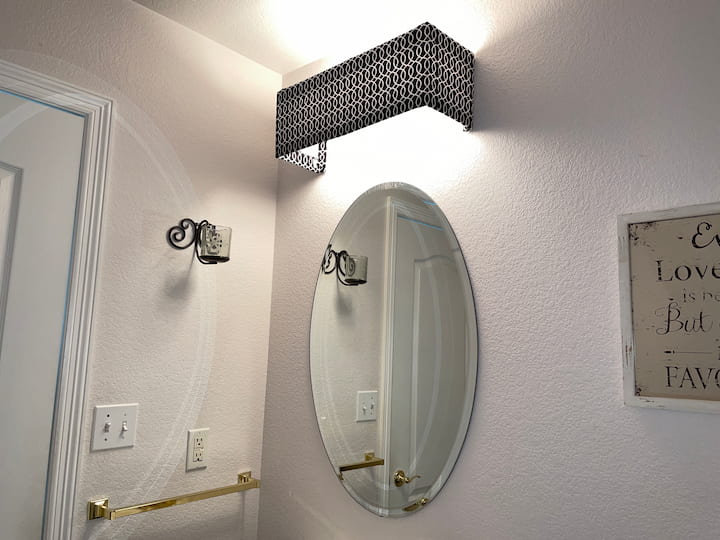Home Buying Tips: What Parents Should Look For When Buying a New Home
Every parent wants to ensure their home provides the perfect environment for their kids to nurture. We’re going to cover some home buying tips like a safe and friendly neighborhood, district schools, and ample space are typically what parents look for.
This post may contain affiliate links, I earn from qualifying purchases at no extra cost to you. Click here for my disclosure policy

But are you sure you have covered everything? Many homebuyers decide to buy a house that seems everything they dreamt of but discover several problems later that they initially overlooked due to the excitement and eagerness to start their new lives.
This list will cover the key factors parents should consider when buying a new home, helping you make an informed decision that goes beyond the basics.
What are 5 tips you recommend when purchasing a house?
- Set a Realistic Budget: Before you start looking at houses, determine how much you can afford to spend. Consider not only the mortgage payments but also other expenses like property taxes, insurance, maintenance, and utilities. Make sure your budget is realistic and accounts for any potential changes in your financial situation.
- Research the Neighborhood: The location of the house is just as important as the house itself. Research the neighborhood thoroughly to make sure it fits your lifestyle and needs. Consider factors such as safety, schools, amenities, commute times, and future development plans. Visit the neighborhood at different times of the day to get a sense of what it’s like.
- Get a Home Inspection: A home inspection is crucial to uncover any potential issues with the property before you finalize the purchase. Hire a qualified home inspector to thoroughly evaluate the house for any structural problems, safety hazards, or other issues that may not be visible to the naked eye. The inspection report can help you negotiate repairs or adjustments to the purchase price.
- Consider Resale Value: Even if you’re planning to stay in the house for the long term, it’s essential to consider its resale value. Look for features and amenities that are desirable to a broad range of buyers, such as a good school district, easy access to transportation, or a functional layout. Avoid buying the most expensive house on the block, as it may be harder to sell in the future.
- Work with a Trusted Real Estate Agent: A knowledgeable and experienced real estate agent can be invaluable in the home-buying process. They can help you navigate the complexities of the market, negotiate with sellers, and handle paperwork and legal requirements. Choose an agent who has a good reputation, understands your preferences, and communicates effectively.
By following these tips, you can make a more informed decision and increase the likelihood of finding the right house for you and your family.
Home Buying Tips: 7 Things to Consider

A Safe Neighborhood
Safety is a top priority when choosing a home for your family. Investigate the area’s safety record, including crime rates and local police presence. Consider the general feel of the neighborhood, too. Are the streets well-lit at night? Is there a sense of community where neighbors look out for each other?
Check for streetlights and whether they are functional. Most crime happens at night but a well-lit neighborhood deters intruders from making an effort. Ask around for neighborhood watch programs or other community initiatives that paint a clearer picture of the security situation. A safe environment ensures peace of mind and fosters a space where your children can play and explore freely.
Other security features to look for include:
- Community controlled security cameras
- Fencing and perimeter security
- Access to emergency response services
- Secure parking for resident vehicles
Proximity to Quality Schools
Quality education is important, and having access to it near your home is a cherry on the top. A shorter commute to school means less travel time and more family time. But also make sure the school offers quality. If you are looking for homes in the Southeast, schools in Atlanta are one of the best in the region.
Consider the school’s curriculum, extracurricular activities, and overall environment to ensure it aligns with your educational aspirations for your children. You can also talk to other parents for real-time feedback instead of relying on brochures and online reviews.
See if there are online communities or forums that have answers or let you connect with other parents. Interacting with residents always offers firsthand perspective in these cases.
Other qualities to look for in schools include:
- Teacher credentials: Find out if teachers are passionate about their jobs and are dedicated to their craft. Having passionate and dedicated teachers ensures that students get the education they need. Assess whether the teachers are qualified and have the relevant experience to teach young children.
- Average student performance: Check the schools standardized test scores, graduation rates, and college acceptance rates. Each of these shows how well the school teaches and nurtures students to excel personally and academically.
- Specialized programs and resources: See if there are programs for gifted students at the school you choose. Is the environment conducive to learning beyond textbooks and assignments? Also, see if the schools has programs for special needs students along with access to advanced placement courses.
- School values and culture: Besides the educational curriculum, the school needs to embody the right values and culture. They can do this by fostering a positive environment, have more socially-inclusive learning facilities, and a more culturally aware environment. The school should help build character and nurture the emotional well-being of its students.
School Facilities: Look into whether the school has good quality science labs and sports facilities. These facilities help students explore their interests without limitations, enabling them to identify their strengths and weaknesses.

Size and Bedroom Placement
The size of the house and the arrangement of bedrooms are key factors. Bigger isn’t always better, but space does matter, especially as kids grow. Think about your daily life – do you need a quiet spot for work or hobbies? Where will the kids do their homework?
The number of bedrooms is important, but so is their placement. If you have young kids, you’ll want them close by. But in the case of teenagers, they might appreciate more privacy (and so might you!).
Where possible, you need areas for work, study, and relaxation. These factors vary depending on how many kids you have and how old they are.
Other home features include:
Safety features: Look for homes that come with smoke detectors and carbon monoxide alarms to protect them from fires or poisoning. The doors and windows should be reinforced and have no vulnerabilities. If there are door and window security sensors with a home security system, this is a plus.
Energy efficiency: The home should use energy-efficient features like insulated windows and energy efficient appliances. Using HVAC systems also contributes to bringing down energy costs. These things help foster a healthy environment in your home for your family.
Sufficient storage space: Ensure that the home comes with ample storage space in the form of attic, basement, and pantry.
Natural light and ventilation: Make the most of nature by looking for homes with enough large windows, skylights, and adequate ventilation.
Nearby Amenities
You can not overlook the convenience of having essential amenities close by. This includes grocery stores, pharmacies, and entertainment options like movie theaters. These amenities not only provide practical benefits but also save time, which is especially valuable for busy parents. Less time traveling to get the basics is more time you put towards yourself and your family.
Also, consider the quality of these amenities. For example, a nearby park is great, but is it well-maintained and safe? Being close to good healthcare facilities, especially pediatric care, is another crucial factor.
Having a clean, well-kept park fosters a sense of community and a break from the hustle and bustle of life. Living near quality amenities improves the quality of your life.
Other examples of quality amenities include:
- Gyms and fitness centers
- Public libraries
- Restaurant and cafes
- Pet-friendly spaces
- Bike paths
- Hiking trails
- Art centers
- Cultural institutions
- Corner stores
Child-Friendly House Architecture
A child-friendly home is one where you’re not constantly saying, ‘Don’t touch that!’ Low maintenance surfaces, rounded corners, and spaces that are easy to keep an eye on – that’s the goal. Children should remember their childhood fondly, not as a series of limitations that didn’t let them have fun – a key aspect of character development.

More Helpful Home Buying Tips
When parents with children are navigating the exciting journey of buying their first home, it’s essential to arm themselves with knowledge about the process. From finding the right lender to understanding closing costs, down payments, and interest rates, there’s a lot to consider.
First-time homebuyers often face uncertainties about credit scores and whether they’ll qualify for conventional loans or government-backed options like FHA, VA, or USDA loans. While these programs can offer valuable benefits such as lower down payments and payment assistance, it’s crucial to weigh the pros and cons.
One crucial step is getting preapproved for a mortgage. This involves submitting financial documents to a mortgage lender who will assess your credit score, income, and debt-to-income ratio to determine how much you can borrow and at what interest rate. A preapproval letter strengthens your offer when making an offer on a home and shows sellers you’re serious and capable.
Closing costs, which include fees for services like title insurance, appraisal, and attorney fees, can add up, so it’s essential to budget for them. Additionally, buyers should be aware of private mortgage insurance (PMI) requirements, especially if they’re not making a significant down payment.
For parents, finding a home that meets their family’s needs is paramount. Factors like school districts, neighborhood safety, and nearby amenities become top priorities. Real estate professionals can be invaluable in helping parents navigate the market, identify suitable properties, and negotiate favorable terms.
While it’s tempting to focus on “nice-to-haves” like upgraded kitchens or spacious yards, parents should prioritize factors that will support their family’s lifestyle and future growth. Keeping credit card balances low and saving for an earnest money deposit can strengthen their financial position and make the home buying process smoother.
Throughout the process, it’s essential to be aware of contingencies, such as home inspections and financing contingencies, that protect buyers from unforeseen issues. By working with knowledgeable professionals and staying informed about the various aspects of home buying, parents can make informed decisions and find the perfect home for their family.
Further Reading:







